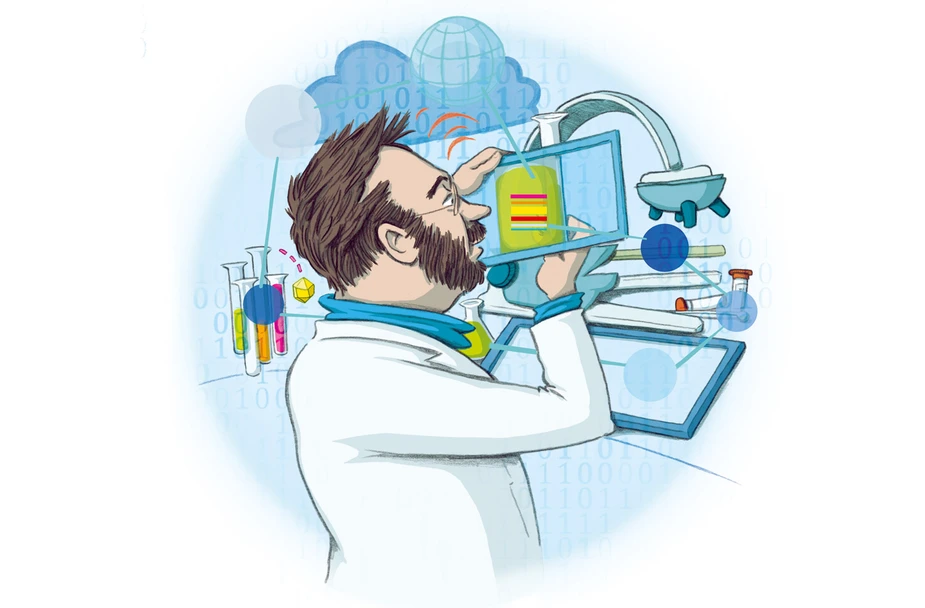Digital Analytical Sciences: What makes them indispensable
Essay by Professor Ulrich Panne, president of the BAM Federal Institute for Materials Research and Testing, and speaker of the IGAFA Joint Initiative of Non-University Research Institutes in Adlershof.
We live in a state of digitality. The term aims at describing a state of interconnectedness of “digital” and “analogue” reality, an interleaving with our lives that is spurring long-term changes in the relationship between the private and the professional domain. Digitality is also changing the research process, because it is making the division between extracting knowledge from and processing digital data obsolete. The digital transformation thus penetrates all areas of natural science and engineering research, including the analytical sciences.
In the 1970s, the study group on analytical chemistry of the German Chemical Society (GDCh) developed a definition of analytical science: “Chemical analytics is the science of the collection and utilisation-focused interpretation of data on materials systems using scientific methods.” This condensed, early description already highlights the close connection between analytics and data processing. The starting point in analytics is usually a sample. Working with the sample, researchers inductively formulate a hypothesis and deductively either confirm it by means of experimenting or discard it. It is this process, the questioning of why, that makes the analytical sciences a science in the first place and not merely an “indispensable maidservant”, as W. Ostwald remarked in the first textbook on analytical chemistry in 1901. Indeed, the field of analytical sciences has since become indispensable for many scientific and technical solutions and innovations.
Facts are becoming cheap in the digital age: after centuries when the observation of phenomena was the linchpin of scientific activity, in astronomy, for example, the modern age brought about the theoretical and mathematical description of these observations. Today, algorithmic, mathematical compression of observations makes possible comprehensive simulations and visualisations of complex phenomena. Modern scientific experiments are characterised by a hitherto unknown abundance of data. After empiricism, theory, and simulation, many scientific disciplines are now making the transition to data-driven science (eScience).
Against this backdrop, the “digital analytical sciences” can be understood as the sum of all aspects of analytics that are being transformed by the digitisation of science: research data management using an “ontology of samples”, the use of the internet of things (IoT) in laboratories as well as advanced automation and robotics, the use of artificial intelligence and machine learning to link the data to a world of sensors, microfluidic systems from additive manufacturing combined with chemical sensor systems from a rational, simulation-driven synthetic chemistry. These are only but few aspects of the diversity in “digital analytical sciences.”
In the context of the great future challenges, digital analytical sciences are a requirement for analysing and interpreting large amounts of experimental and empirical data for generating knowledge about complex relationships and interdependencies on the system level. The globally distributed, collaborative, and interdisciplinary cooperation necessary for this also changes many researchers’ individual practices. Despite the widespread adherence to a specialist domain, the analytical scientists of the future will have to be “data scientists”, too.
